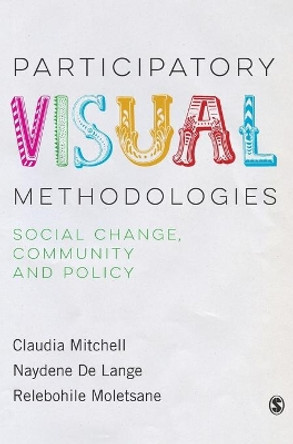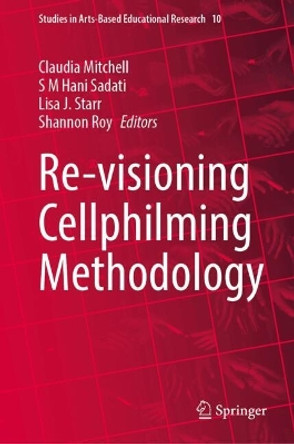Description
This book demonstrates how data from participatory visual methods can take people and communities beyond ideological engagement, initiating new conversations and changing perspectives, policy debates, and policy development. These methods include, for example, photo-voice, participatory video, drawing/mapping, and digital storytelling.
Organised around a series of tools that have been used across health, education, environmental, and sociological research, Participatory Visual Methodologies illustrates how to maintain participant engagement in decision-making, navigate critical issues around ethics, track policies, and maximize the potential of longitudinal studies. Tools discussed include:
- Pedagogical screenings
- Digital dialogue devices
- Upcycling and 'speaking back' interventions
- Participant-led policy briefs
An authoritative and accessible guide to how participatory visual methods and arts-based methods can influence social change, this book will help any postgraduate researcher looking to contribute to policy dialogue.
About the Author
Claudia Mitchell is a James McGill Professor in the Faculty of Education, McGill University where she is the Director of the McGill Institute for Human Development and Well-being and the founder and Director of the Participatory Cultures Lab. She is an Honorary Professor in the School of Education, University of KwaZulu-Natal, South Africa. She was the 2016 recipient of the Social Sciences and Humanities Research Council Gold Medal awarded for the impact of her research which cuts across a number of areas including girlhood studies, youth, sexuality, and HIV and AIDS, gender violence, and teacher identity, and in a number of countries including Canada, South Africa, Russia, Ethiopia, and Kenya . As a methodologist she is particularly interested in participatory visual research, memory work and material culture, and autoethnography. Naydene de Lange is Emeritus Professor in the Faculty of Education at the Nelson Mandela Metropolitan University, Port Elizabeth, South Africa. She previously held the HIV and AIDS Education Research Chair in the Faculty of Education at the same university. Her research focuses on using participatory visual methodologies in addressing gender and HIV&AIDS issues, and integrating HIV&AIDS into Higher Education curricula. Relebohile Moletsane is Professor and the John Langalibalele Dube Chair in Rural Education in the School of Education, University of KwaZulu-Natal in Durban, South Africa. Her areas of research include curriculum studies, rural education, gender and education, sexual and reproductive health education, girlhood studies and girls education in Southern African contexts. She is the Co-PI (with Claudia Mitchell, McGill University) on the Networks for Change and Wellbeing project (Networks for Change and Well-being (www.networks4change.co.za/). The project uses participatory visual methodologies, including photo-voice, participatory video (cellphilm), digital storytelling and drawing to address sexual violence with girls in rural KwaZulu-Natal.
Reviews
This powerful book brings together rich insights from participatory visual studies, reflexivity, and audience studies--a must for anyone wishing to engage in meaningful participatory research.
-- Lindsey McCarthy
A vital resource for researchers and practitioners working across disciplines. This book is simultaneously a valuable synthesis of existing knowledge in the area and an important building block for the continued development of this field of inquiry. -- Ioana Literat
The book presents an invaluable resource for researchers using visual methods. It expands the field of participatory visual methods by providing a critical and rich perspective on its potential to impact policy-making processes. With over a decade of experience of working together in this field the authors are uniquely placed to make this contribution, as they critically engage in issues of power, ethics and representation. -- Verena Thomas
Book Information
ISBN 9781473947313
Author Claudia Mitchell
Format Paperback
Page Count 248
Imprint Sage Publications Ltd
Publisher Sage Publications Ltd
Weight(grams) 430g








